
Are hunters an endangered species in Switzerland?
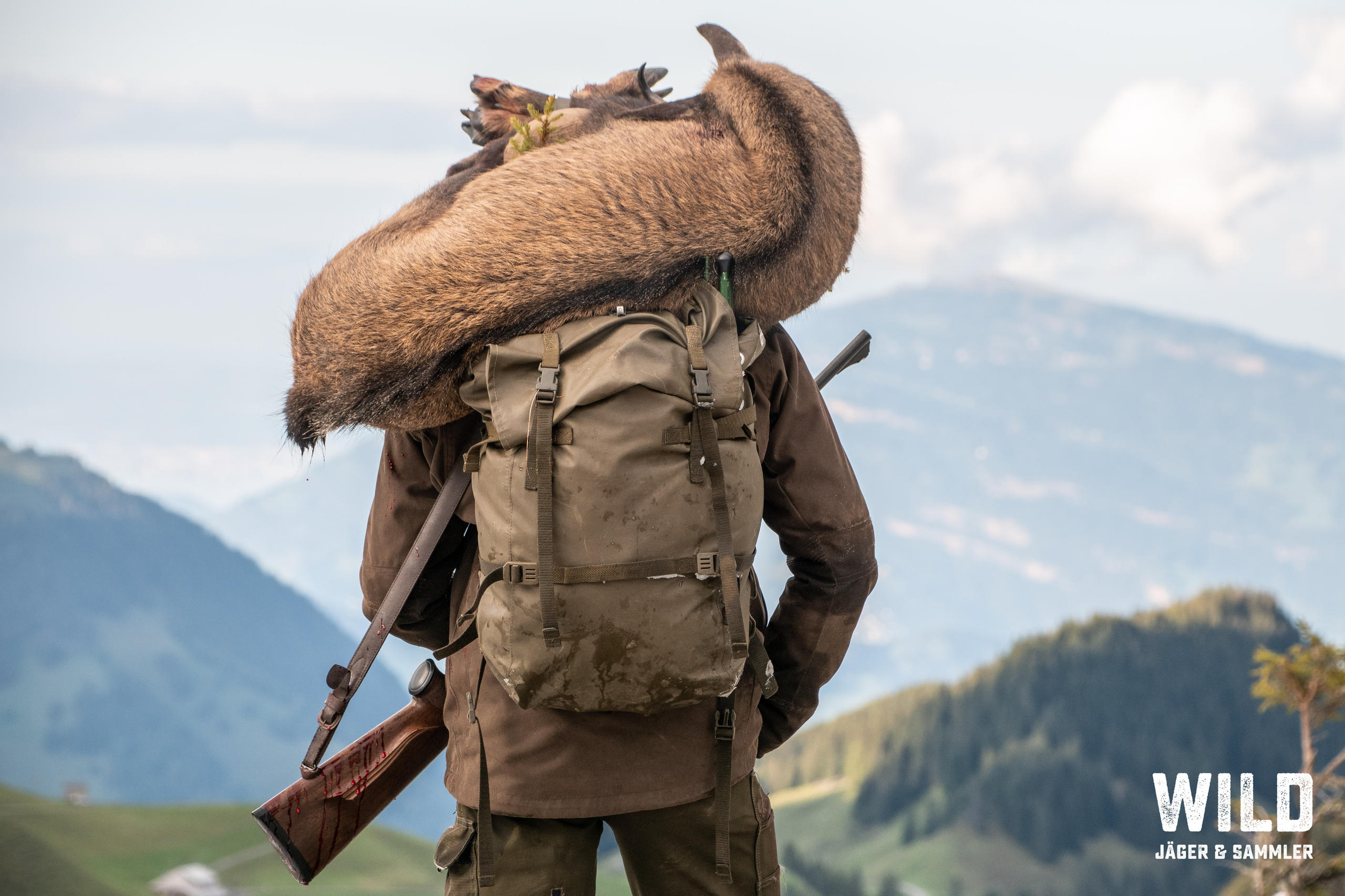
Ahead of a vote on banning children from joining the hunt in eastern Switzerland, Mario Theus, a forester, hunter and filmmaker, discusses his new documentary, which he hopes will open viewers’ eyes to a world “hardly anyone understands”.
“Sit for an hour on YouTube and watch the wrong videos and you’ll have only one image of hunting: that it’s a cruel way of killing an animal,” Theus says from his antler-lined hut in Val Calanca, canton Graubünden.
“The best way to make somebody understand what hunting’s all about is to invite them to join me. If you really want to know why I do what I do, why I live how I live, or the big question – how I’m able to kill an animal – writing or debating won’t change much because you’ll never understand it deeply. I don’t have the words. But if you come with me and live my life, you’ll see what I experience during hunting – you see when I’m happy, when I’m sad, and you see what happens with yourself when you’re faced with killing.”
In his attempt to invite non-hunters into his world and lifestyle, Theus spent many cold nights, spread over four hunting seasons, prowling the forests and valleys of three Swiss cantons with three fascinatingly different characters: a poacher-turned-photographer, a gamekeeper and a farmer.
The result is Wild – Jäger und Sammler (In the Wild – Hunters and GatherersExternal link), a 90-minute portrait of life in Swiss mountain regions and the central role that hunting plays for many people there.
“I was one of the lucky ones to be born into a hunter family,” Theus, 41, says. “Already at the age of two or three your parents will take you outdoors more [than children in cities]; you’ll already be eating deer or hare. And of course your parents will tell you what it is – if they see in the snow the track of the animal you had on your plate, they’ll tell you, ‘this is the animal you ate yesterday’.”
Theus explains how he already knew, at the age of four, that this was the environment and lifestyle for him. Having studied forest engineering at the federal technology institute ETH Zurich, he worked as a journalist and filmmaker, but six years ago he noticed he was getting depressed.
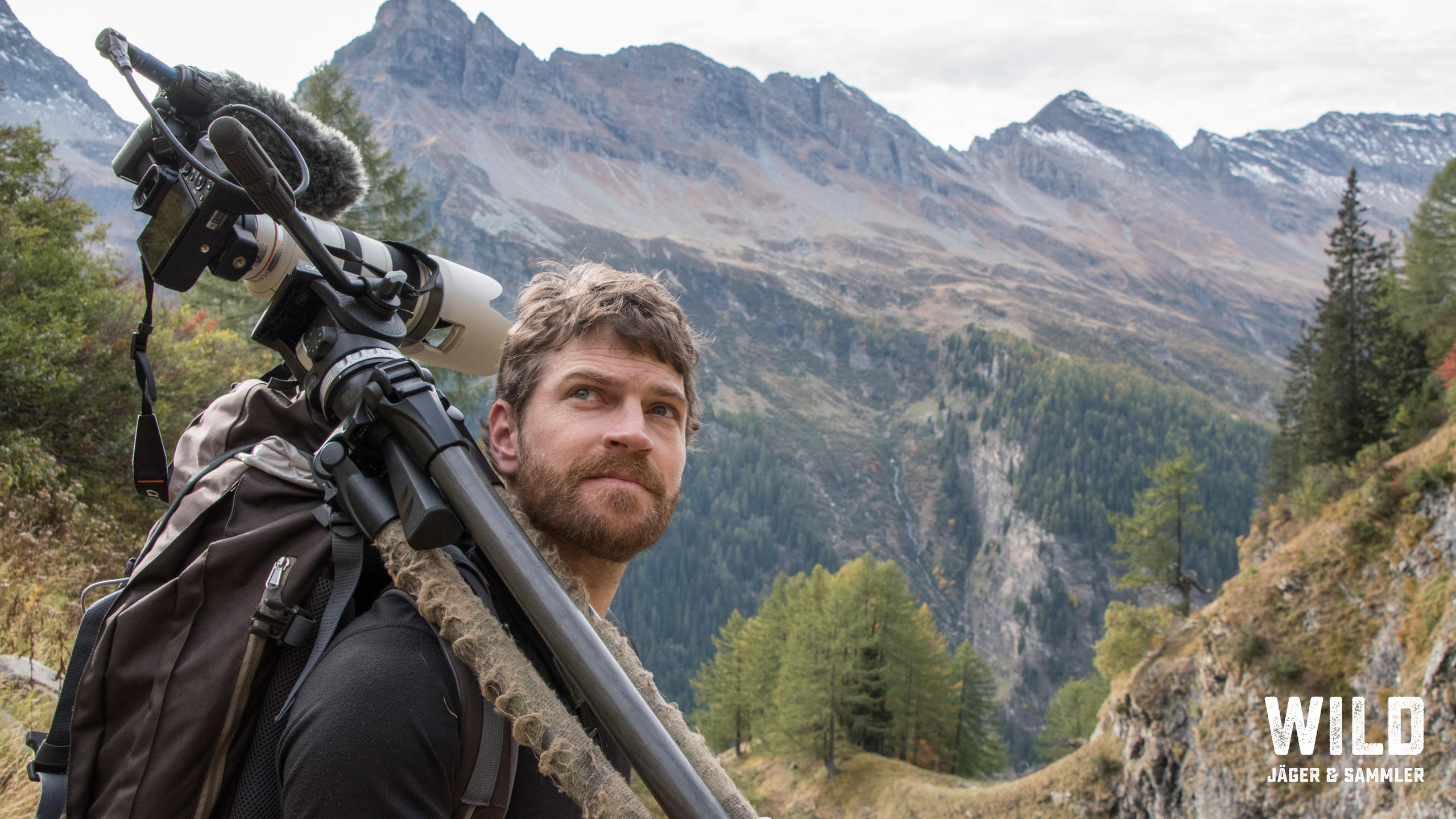
“I realised I wasn’t in the world that the four-year-old me wanted to be in – I was working in the city and only going to the mountains and forests during my free time,” he says. “If I do a normal job, I’m like a wild animal put in a zoo. I start going round in circles. I’m unhappy and in the end I die mentally.”
So he quit his job and went freelance. Originally his plan had been to make a documentary about Swiss predators: bears, wolves and lynx. But after a chat with producer Martin Schilt they decided that focusing on the hunters themselves offered the most potential for an emotional and cinematic journey.
The cast
In the Wild isn’t didactic or moralising. It’s simply an authentic portrayal of a way of life that will be unfamiliar to the vast majority of viewers, who get to know the three protagonists up close. They also have time to reflect on possibly new points of view during dreamy drone shots over some of Switzerland’s most breathtaking scenery.
Urs Biffiger from canton Valais in southwestern Switzerland is a repentant poacher who replaced his rifle with a camera and has since had success with various films, such as Hirsche im Oberwallis (Stag in Upper Valais) in 2009:
Theus explains how the two would spend four or five consecutive nights in the forests over four seasons – digging up boxes of food and drink Biffiger had squirrelled away – in order to get the right shot. “What he can read in the forest, how good he knows the deer – it’s just amazing. You’d think you’d only find someone like that in Africa or North America.”
Andreas Käslin is a hunter and farmer on the Dossen Alp in canton Nidwalden, central Switzerland. In one of several memorable scenes, one of Käslin’s children asks him why he is stuffing a leafy twig from a fir tree into the mouth of a chamois he has just shot. He movingly explains how the “last bite” is a sign of “Ehrfurcht” – respect, awe, reverence – for the animal, which now won’t be hungry on its journey to heaven.
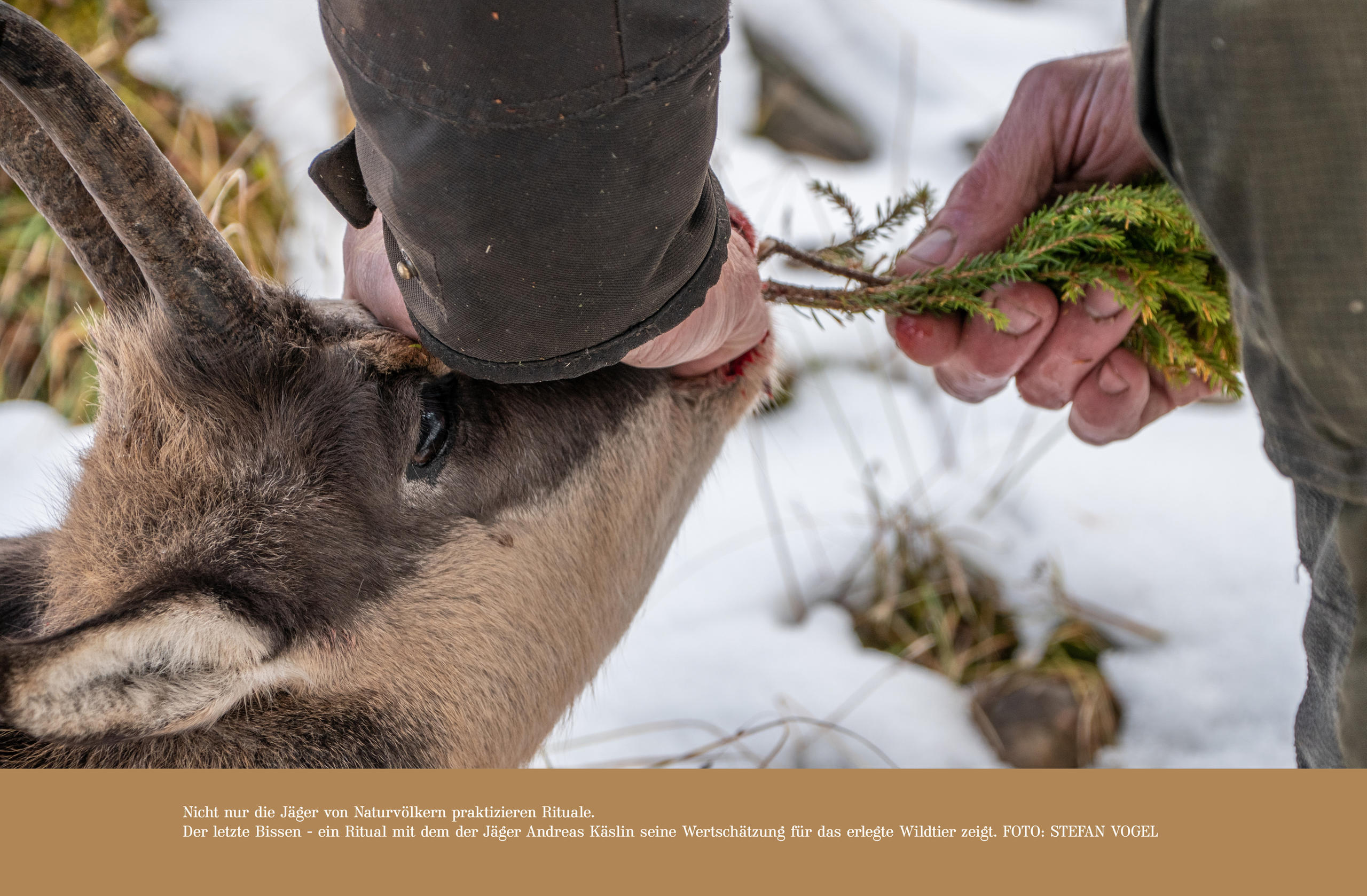
Pirmina Caminada is Switzerland’s first female gamekeeper and must have one of the most beautiful offices in the world: Val Uastg in canton Graubünden, eastern Switzerland. In another eye-opening scene Caminada, like Theus one of Switzerland’s 50,000 or so Romansh speakers, decapitates a (dead) deer while children play in the background. (Several animals were harmed – fatally – in the making of this film.)
In the Wild – Hunters and GatherersExternal link was directed by Mario Theus and had its world premiere at the Solothurn Film Festival in January. It will be shown in open-air cinemas across Switzerland in July and August and is set to be released in (indoor) cinemas on October 21.
The film was supported by Romansh- and German-speaking Swiss public broadcasters, RTR and SRF, which, like SWI swissinfo.ch, are part of the Swiss Broadcasting Corporation.
The ethics
While Theus inherited the hunting gene from his father, his sister became a vet. A scene with her cleaning the teeth of an anaesthetised cat highlights some of the inconsistencies in many people’s attitudes to animals and meat.
“I don’t want to attack your vision of the world, but I do want to trigger you to start thinking,” Theus says. “If you want to leave the cinema with the same mindset – if you think these are crazy idiots killing animals and of course it’s right that my dog is treated like a human – you can. But I wanted to put in enough material so that, if you are open to reflection, you can start thinking.”
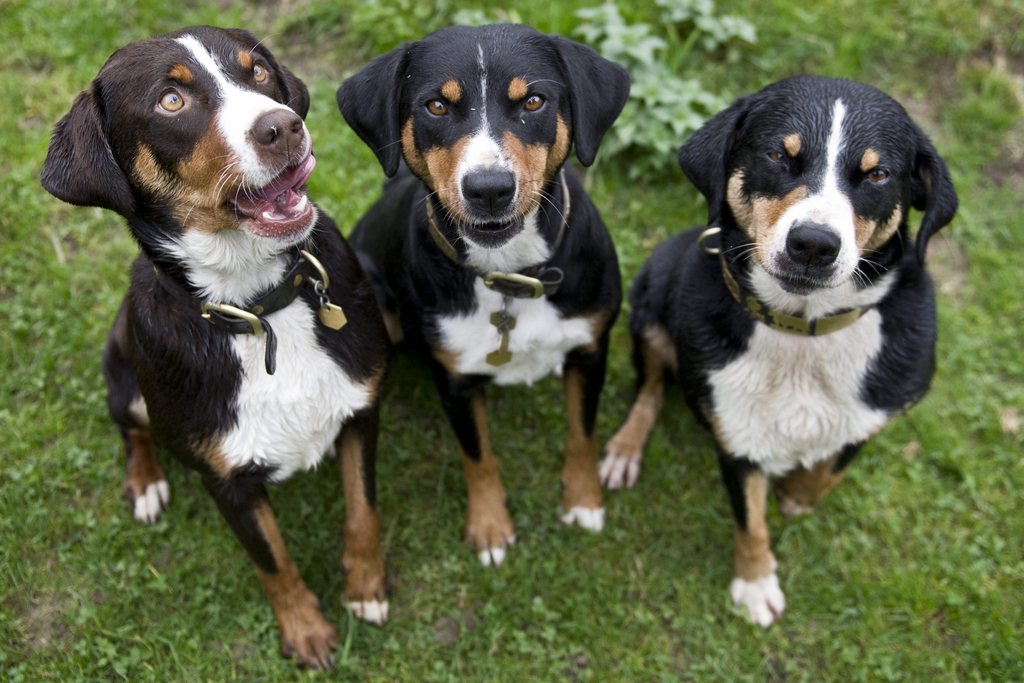
More
Animal lovers question morality of eating pets
One of the main moral arguments against hunting is that killing sentient animals, animals that can feel pain, is cruel. So how does Theus justify it?
“Well, this is a tough question that implies hunters are doing something nobody else is doing. If you address the philosophically fundamental question – should one kill an animal for food? – I guess it’s an easy answer: of course it’s more noble not to kill something,” he says.
“But, as the movie shows, hunters grow up not with a fascination for killing but with a fascination for the surrounding environment with all its life and animals and plants. And now we’re at the point where for most people the only issue is ‘but you killed something’. Yes, because later I want to eat it! Why do you have a problem with that? All the other animals you buy in plastic in the store have been killed too. So maybe the only problem is that I subconsciously remind you what happened with all the other food.”
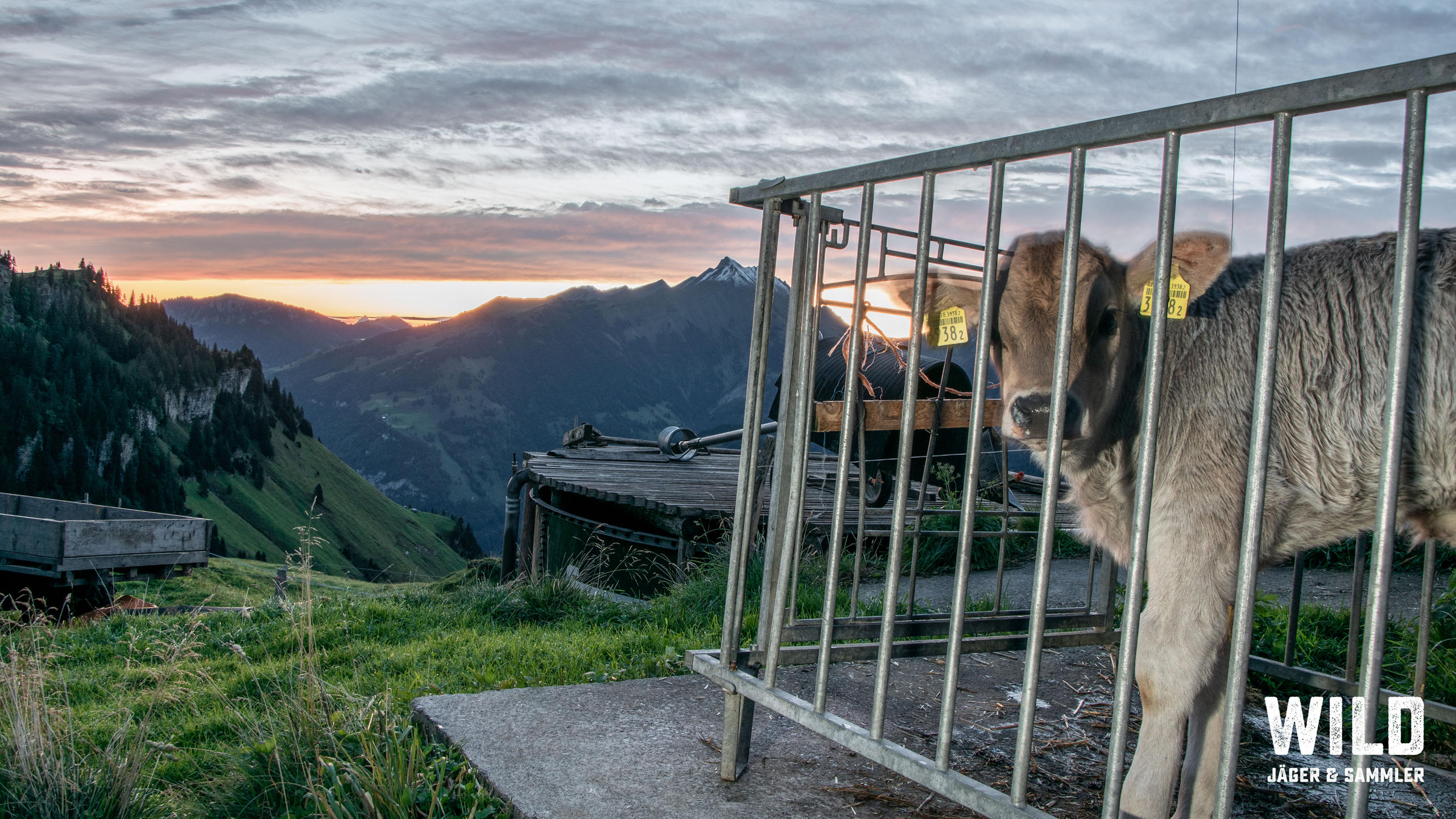
Vegetarians and vegans would argue that all meat should be off limits – it doesn’t matter whether you kill it yourself or pick it off a supermarket shelf – but even Australian moral philosopher (and vegan) Peter Singer, a pioneer of the animal rights and welfare movement, suggests there is a case for deer hunting in certain circumstances.
“Many people who think nothing of buying factory-farmed ham or chicken from a supermarket are quick to condemn hunting; yet hunting is more defensible than factory farming,” Singer writes in his book Practical Ethics.
“Consider deer hunting in those parts of the United States where there are no longer any predators, other than human beings, to keep the deer population in check. Deer then reproduce to the point where they no longer have enough to eat, and they begin to degrade the environment. Eventually many of them will starve. Hunters argue that a quick death from a bullet is better for the deer than slow starvation, and environmentalists point out that the high density of deer may cause other species, both plants and animals, to become endangered. That death from a well-aimed bullet is preferable to starvation is undeniable, and this holds even if deer are self-aware.”
In the film Theus quotes one of his forestry professors who said “the only good deer is a dead deer”. Is that still the accepted view?
“This is common sense for foresters. I studied forest engineering at the ETHZ – there were 30 students and only three were hunters. And we clearly had a different mindset and a different attitude towards wildlife,” he explains.
“The classical forester is interested in the forest and in the functions of the forest, like protecting people from snow and avalanches or preserving and giving us clean water. Wildlife is just a problem-causing factor in the system. The same we see with the farmer who has cattle or sheep: he’s interested in the sheep and in the grass feeding his sheep. So although a wolf is a part of nature, it will have a hard time – not many people like or respect the wolf. With the forester it’s not the wolf, it’s the deer, because the deer eats the trees. The hunter is much closer to the farmer – he likes deer – and struggles to like anything that endangers or reduces the number of deer, for example the wolf or the lynx.”
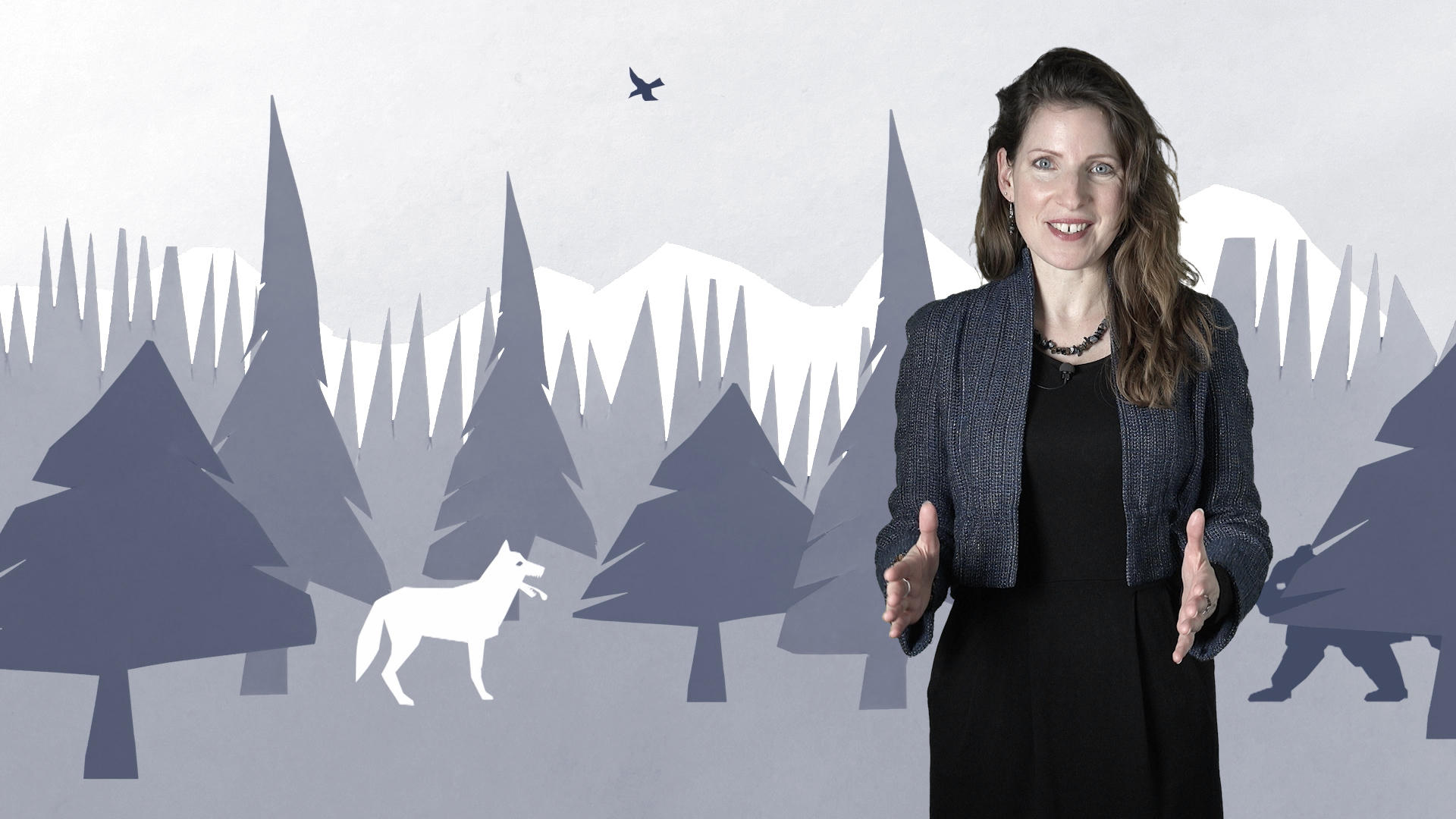
More
Wolves: welcome or worrying?
The vote
Theus thinks the way of life he captured on film has barely changed over the past half-century, but he’s unsure what the situation will be 50 years from now.
“Maybe there will be even fewer people left who have these skills,” he says. “Even the farmer, Andreas Käslin, is someone who you might not find any more in 50 years – not many people will decide to lead this lifestyle.”
The same might also be the case with future hunters, he believes. “They’ll have more technology and will lose all the skills. They’ll be like soldiers. They’ll be successful as hunters in the sense that they can shoot their prey, but they’ll lose what many non-hunters have already lost: a closeness and connection to nature and this way of life.”
A step in this hunter-free direction could be taken on June 13, when voters in canton Graubünden will decide on an initiative which says “children up to 12 years of age may not be taken hunting and may not be encouraged in school to hunt”.
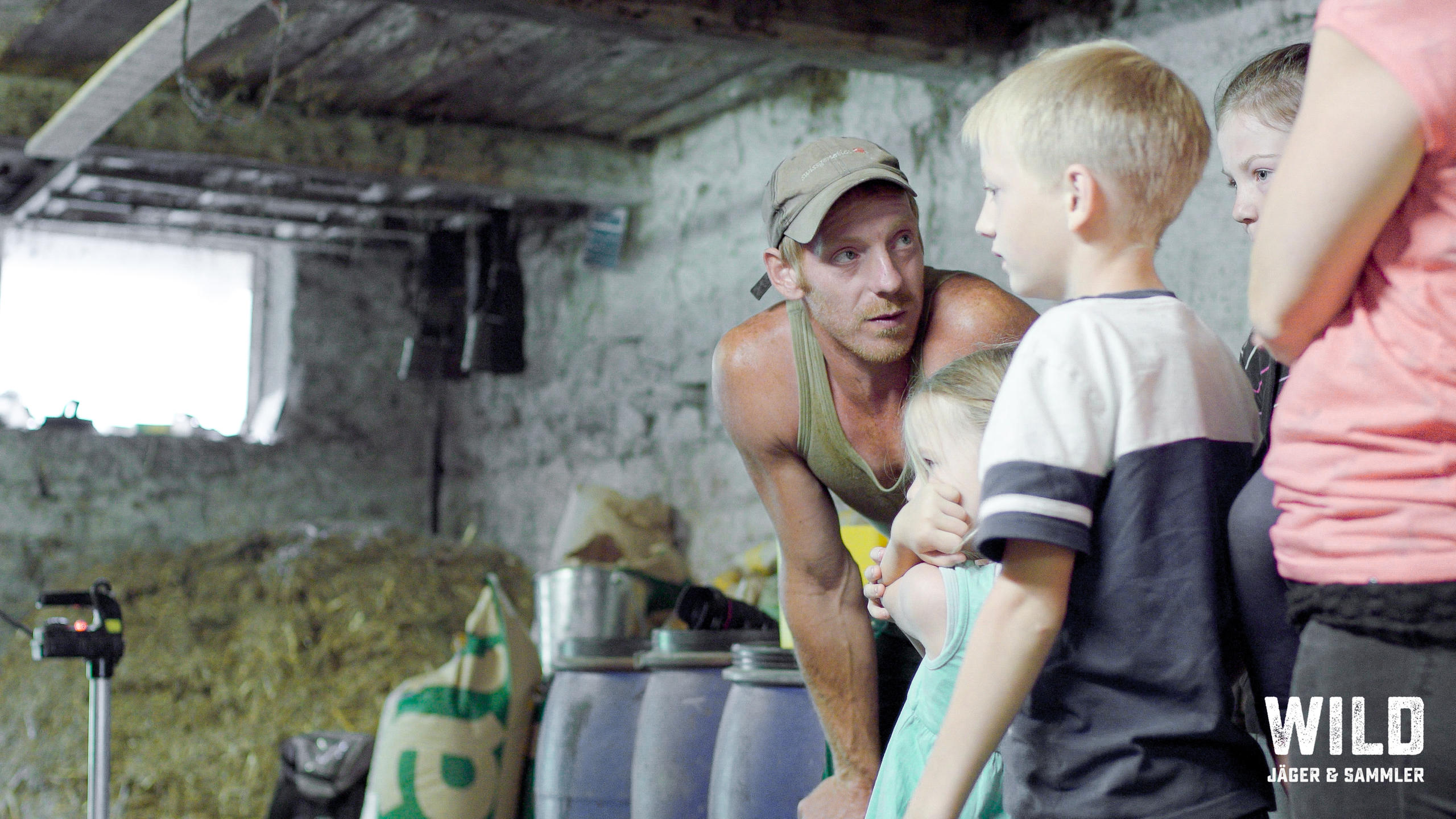
Unsurprisingly, hunting organisations (and the cantonal government) are urging voters to reject it*. “Of course I’m against it,” Theus says. “I think I’d be against any law that tells parents what culture they should teach their children.”
He says the official argument is that they want to protect children from cruelty and violence, but he suspects the real reason is to reduce the number of hunters in the long run. The years before 12 are a formative time in a person’s life, he says, and if they aren’t introduced to hunting and don’t get the bug when young, it may be too late. “And the initiative organisers know this.”
In this audio clip Theus, normally calm and composed, as one imagines a good hunter should be, becomes animated when remembering his own pre-teen experiences of hunting and bonding with his father:
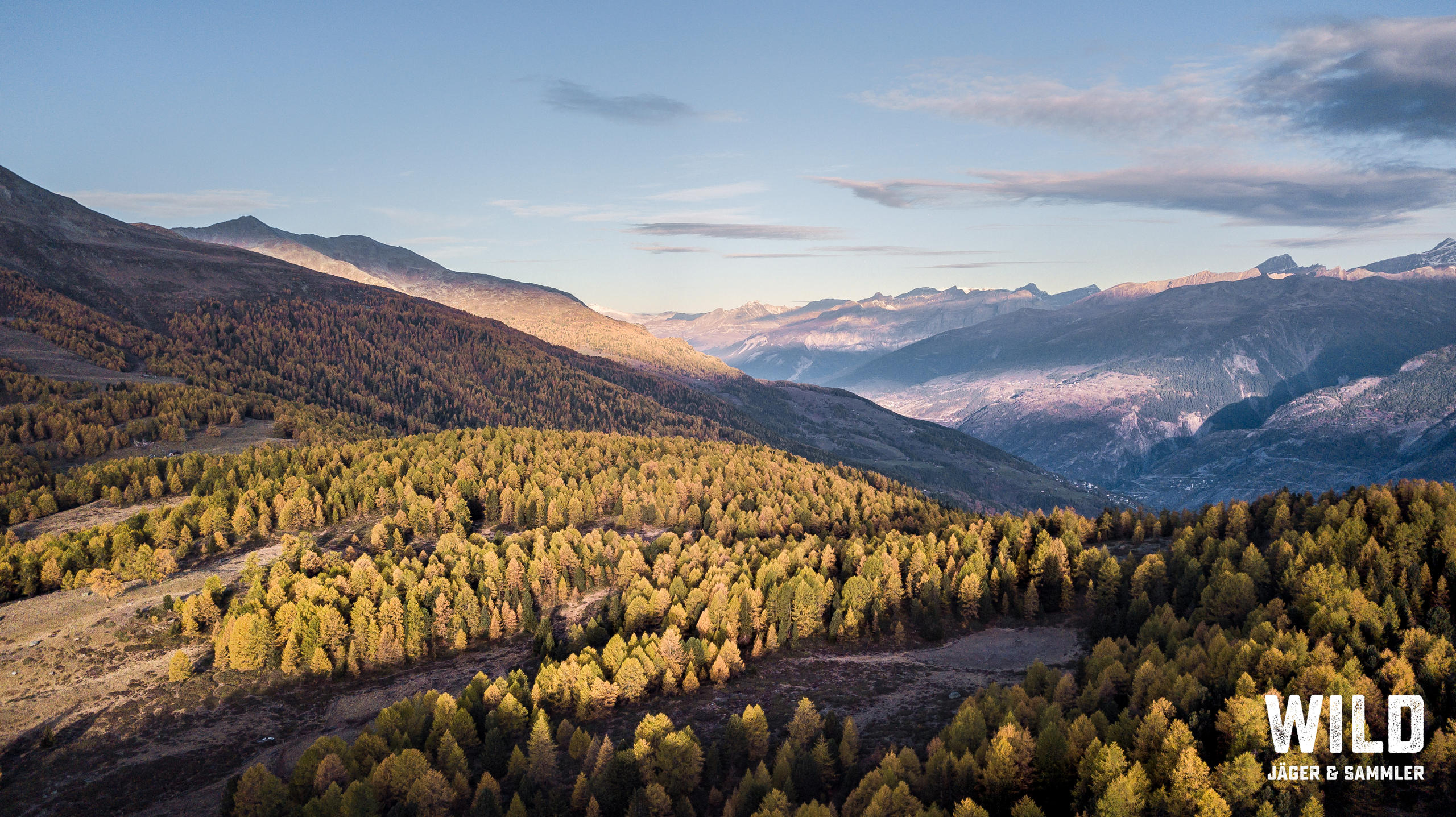
Mario Theus talking about hunting
Andreas Käslin in particular seemed concerned about the future of the lifestyle he inherited from his father and would like to pass on to his children. “Hunting and learning to live with the mountains is something we need,” he says in the film. “It’s a piece of culture, a piece of Switzerland, a piece of life.”
*Update: 79% of voters voters did reject the initiative.
‘In the Wild – Hunters and Gatherers’ is set to be released in cinemas on October 21.

In compliance with the JTI standards
More: SWI swissinfo.ch certified by the Journalism Trust Initiative































Join the conversation!